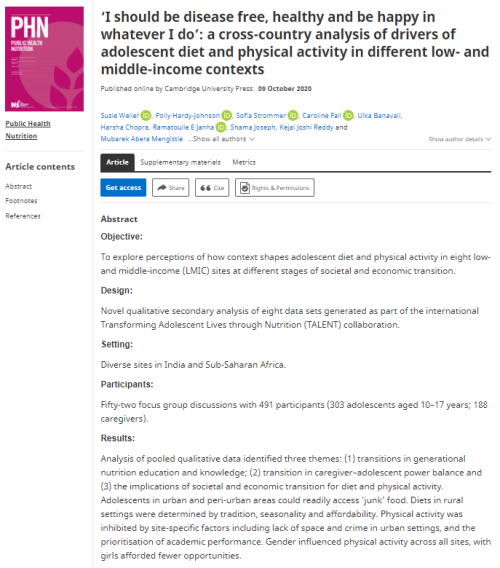This article analyzed qualitative data from 5 countries (8 sites), in which focus groups were conducted with adolescents and caregivers. Major themes included: (1) transitions in generational nutrition education and knowledge; (2) transition in caregiver–adolescent power balance and (3) the implications of societal and economic transition for diet and physical activity. Additionally, urbanicity affected diet, with wide availability of junk food in urban and peri-urban environments, compared to rural areas, in which diet was more influenced by tradition, seasonlity and cost. Safety, lack of dedicated space, and prioritization of academic performance emerged as barriers to physical activity, with more opportunities for boys than girls. The article highlights the need for change at the community, household and policy-level.
